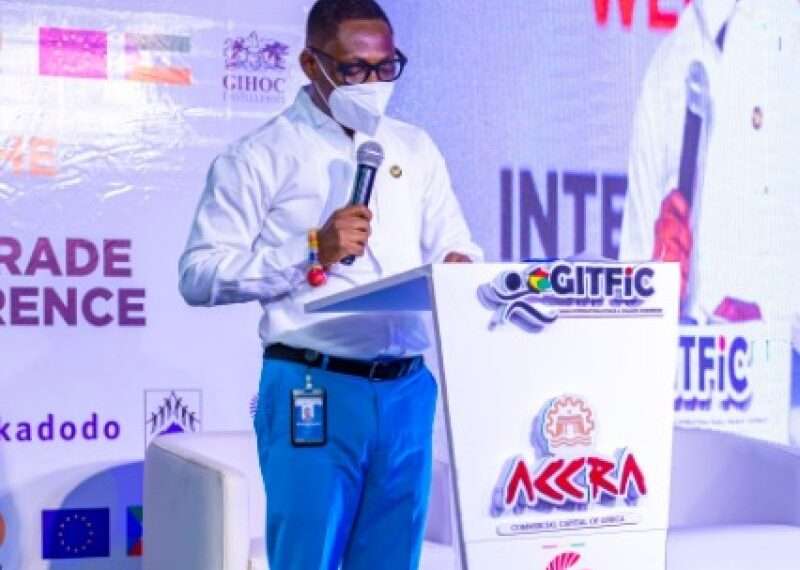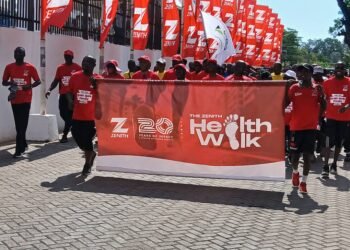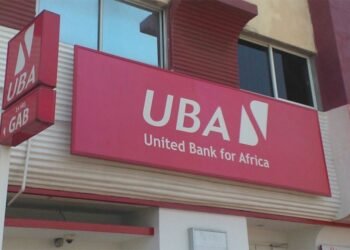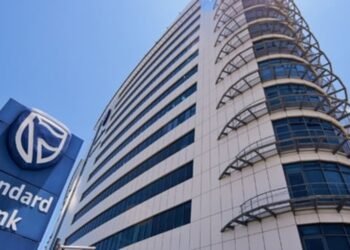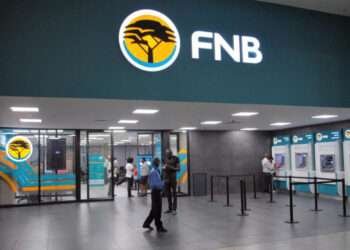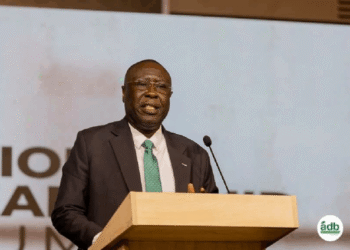Mr. Selasi Koffi Ackom, Chief Executive Officer (CEO) of the Ghana International Trade and Finance Conference (GITFiC), has intimated that the low asset base of Ghanaian banks is a major contributor to their inability to penetrate internationally like other foreign banks have penetrated into the Ghanaian market.
Mr Selasi Koffi Ackom made this known in a statement in reaction to a rhetorical questioned posed by the Trade Union Congress on why there are no Ghanaian banks in other countries.
“Most of the banks owned by Ghanaians have a low asset base compared to their counterparts from other African countries.
“The language barrier is another factor that prevents some Ghanaian investors from operating in international markets. Most of the countries surrounding Ghana are Francophone countries hence the need for trusted persons who can interpret French for Ghanaian investors when they visit Francophone markets.”
Mr. Selasi Koffi Ackom
According to the GITFiC CEO, most of the commercial banking space are occupied by foreign banks mostly from Nigeria and South Africa among other countries.
“There are 23 registered commercial banks in Ghana as of 2021. Out of the 23 banks, nine of them are Ghanaian-owned institutions, while the rest of the 14 are foreign-owned banks. Four out of the nine Ghanaian owned-banks are state-owned banks. Cal Bank also has its major shareholder to be Social Security and National Insurance Trust (SSNIT) is also a state-owned institution.
“This implies that the solely private Ghanaian-owned banks are Universal Merchant Bank, Prudential Bank Limited, OmniBSIC Bank Ghana Limited, and Fidelity bank.”
Mr. Selasi Koffi Ackom
The GGITFIC said the primary goal of businesses is to make profits for its stakeholders and as such, growth in market shares is one of the major tools that businesses use in increasing their profit. He added that the banking sector is a highly competitive sector, where the ability of a bank to increase and maintain market share is key to the survival of the bank as well as meeting the profit targets of the bank.
“The Ghanaian economy is one of the largest economies in Africa. The Ghanaian economy, currently, is the 8th largest economy in Africa, behind Nigeria, Egypt, South Africa, Algeria, Morocco, Kenya, and Ethiopia. Nigeria has nominal GDP of $480.482 billion as of 2021, followed by Egypt with $396.328 billion. Ghana has a GDP of $75.487 billion as of 2021. It will be expected for businesses from countries with higher economic standing to participate in international business by establishing operations in other countries.”
Mr. Selasi Koffi Ackom
Recapitalisation and Banking Sector Clean-up
The statement further noted that before the 2017 recapitalisation and subsequent banking sector cleanup in Ghana, more than 10 private Ghanaian-owned banks were operating in Ghana, but due to the recapitalisation demand of GHS 400 million in 2017, some of them were merged, taken over by the government, with some closing down.
Mr Selasi Koffi Ackom noted that Ecobank Ghana has the highest asset base of GHS 15.8 billion, followed by Ghana Commercial Bank with an asset base of GHS 15.4 billion. He stated that none of the Ghanaian-owned private banks had an asset base of more than GHS 10 billion.
“Comparing the assets of banks owned by Ghanaians and those owned by foreigners, Ghanaian banks will not be able to compete internationally.”
Mr. Selasi Koffi Ackom
Mr Ackom said the nature of an investor is also another factor that affects the ability of an organisation to move into international markets.
“The calm and peace-loving nature of Ghanaians turn to increase the tendency of Ghanaian investors to be more risk averse as compared to some of their Nigerian and South African partners. The fear of the unknown situation to befall the fate of investment increases the risk-averse nature of Ghanaian investors.”
Mr. Selasi Koffi Ackom
The GITFiC CEO said although there was a need for Ghanaian-owned banks to expand into international markets, their inability to raise GHS 400 million during the recapitalization few years back is evidential that they are still struggling to break even.
READ ALSO: Syrian Refugees Pushed To The Brink As Za’atari Refugee Camp Turns 10



